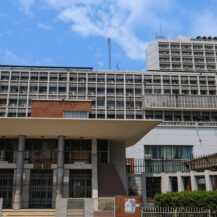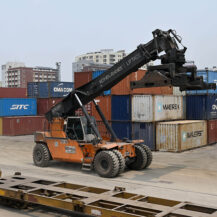WTO 11th Ministerial Conference Time to Write off The Doha Development Agenda?
By
More hype than bite
The World Trade Organization’s (WTO’s) 11th Ministerial Conference (MC11), held in Buenos Aires from 10 to 14 December 2017, will be remembered more for its lack of any outcome than for making progress in the world order of rules-based international trade. Nevertheless, there was no dearth of all the hype and hoopla that goes with a high-profile global summit. Four Latin American presidents were in attendance (those of Argentina, Brazil, Paraguay and Uruguay), albeit for a somewhat different purpose – that is, signing and launching the Buenos Aires Declaration on Women and Trade, which will create a platform and framework for a more inclusive trade agenda by emphasising the role women can play in the global economy. Also, in attendance were trade ministers or their representatives from 164 member-countries.
MC11 ended without a ministerial declaration, a sine qua non of these WTO Ministerials. These declarations usually reflect consensus on some agreements or commitments of members on issues negotiated or under negotiation, and on new trade issues to be put on the table. This time there was not even a statement that the parties ‘agree to disagree’, as was the case in MC10 in Nairobi. Indeed, the writing was on the wall: reports emanating from Geneva indicate that the US representative had taken the position during the run-up to MC11 that ‘no negotiated outcome is possible in the 11th Ministerial and there will be no ministerial declaration’. To back up this position, the US team generally appeared ‘disengaged’ for the most part, sending ‘low-level delegations’ to Geneva for many of the pre-MC11 meetings. Thus, it became clear that the outcome the team would prefer was no outcome. Unlike its two predecessors, MC9 and MC10, where ministerial declarations had to be thrashed out in the late hours, this time disagreements between developed and developing countries, and between the US and the rest, appeared insurmountable to the very last.
The Doha Development Agenda dead or dying
MC11 might also be remembered as the last nail in the coffin of the Doha Round – the latest round of trade negotiations among the WTO membership. The Doha Round, also labelled the Doha Development Agenda (DDA), was officially launched at the WTO’s Fourth Ministerial Conference in Doha, Qatar, in November 2001. As the name suggests, ‘development’ was a central mandate in the DDA, aimed at improving the trading prospects of developing countries, with major reform of the international trading system through the introduction of lower trade barriers and improved trade rules.
The DDA emerged as a counterpoint to the ‘Singapore issues’, which were tabled in 1996 immediately following the establishment of the WTO in 1995. These issues, which included investment, competition, public procurement and trade facilitation, were the priorities determined by the group of developed countries for subsequent negotiations and agreement. In due course, the Singapore issues became the most contentious set of negotiating subjects, as developing countries found them cumbersome. This resulted in a sharp divide in the views of the two contending groups. The developing countries argued that, apart from trade facilitation, the other issues were not strictly trade-related, and should not have a role in the WTO framework. This divide provided fodder for the emergence of the development round launched in Doha in 2001, which reflected some of the priorities of the developing countries.
Technically, the Doha Round, under negotiation for the past 16 years, has outlasted its predecessor, the Uruguay Round (8 years), which led to the setting-up of the WTO. The prolongation of rounds is itself a sign that things are not working out among the diverse groups with conflicting stakes that make decision-making in the consensus-based institution rather unwieldy. Launch of the Trade Facilitation Agreement (TFA) in 2017, which two thirds of the WTO’s 164 members (including the US) have ratified, can be cited as the WTO’s main achievement for a long time. However, trade facilitation is actually a leftover from the Singapore Ministerial of 1996.
The prolongation of rounds is itself a sign that things are not working out among the diverse groups with conflicting stakes that make decision-making in the consensus-based institution rather unwieldy.
Realistically, the DDA is all but dead, as there has been barely any progress over the past five years. At the conclusion of MC10 in Nairobi, Garry Hufbauer, one of the world’s leading trade experts, described the DDA as the ‘Walking Dead’, referring to the ghoulish television series. After MC11, it is perhaps time to write the obituary. What is most disconcerting is the assault that is occurring on the liberal international trade order that has benefited people around the world for over 70 years. The US provided leadership in creating an open world order and yet is now turning against the world it made. Questions are being raised about the fundamental role of trade in spreading development across the world. The DDA, which endorsed the centrality of trade for development, faces virtual extinction under this onslaught.
So, is the DDA dead? The answer may have to be deduced from the WTO’s mechanics of decision by consensus. The DDA package was born out of consensus. Its demise can only come out of consensus, which, as we can infer from the sharp division among members, does not exist. So the DDA or its ‘ghost’ may actually live on, driving the WTO into uncharted territory. In the circumstances, a possible option to bring DDA to closure would be to salvage partial agreements out of the whole package and walk away from the rest – by consensus of course!
Multilateralism in distress
MC11 also stoked a debate on whether trade multilateralism had run its course. For more than half a century after World War II, trade growth outpaced output growth and was acclaimed as the driver of prosperity around the globe, though not evenly. Freer trade among nations was indeed the driving force behind globalisation. Developed countries were benefiting from the growing incomes in developing nations – the latter gradually climbing out of poverty having found ready markets in rich countries, giving credence to the phraseology of export-led growth. Rising global trade was lifting all boats, as it were. Jobs and income were created aplenty through movement of goods, capital and people, both in the East and in the West. And no one was complaining, until now.
Paradoxically, we now find that the strongest opposition to globalisation is taking roots in the developed world. Trade openness seems to be the main source of discontent in the streets of the US and Europe – a populist backlash to the kind of globalisation that has evolved. Populism has overtaken reason, and the facts. Trade economists on either side of the Atlantic have been aghast at the rising political headwinds against freer movement of goods, capital and people. So what, if anything, has fuelled the rising voice against a historical trend that brought so much good to so many?
Is it the Trump phenomenon? In stark contrast to the view held by the world’s leading economists, and espoused by the US throughout the post-war period, the Trump doctrine reflects a simplistic view of trade between nations. According to this doctrine, trade is a zero-sum game whereby some nations gain and others lose. In particular, the multilateral trading system has come under attack for its characterisation of member countries as ‘developed’ and ‘developing’, with the latter given generous exceptions in following WTO rules. This has given countries like China undue advantage in accessing the vast US market while the special and differential treatment meted out to such developing countries divests them from making reciprocal gestures. Already, one of the WTO’s crucial organs, the Dispute Settlement Body, which now has four out the seven judges it needs to run, is facing the brunt of US disengagement. The US is blocking the appointment of replacement judges, literally paralysing this body, which has played a pivotal role in preventing the onset of trade wars between countries. Coming as it does when there are ominous signs of a collision course between the US and China, this is fraught with adverse ramifications for global trade.
Trade issues at stake
So what is the take-away from MC11 on the future of multilateralism? The DDA apart, from the exhortations circulating aplenty at MC11, a keen observer could glean that the headwinds of globalisation and multilateralism had probably reached a tipping point – though not yet an end game. This can be deduced from the state of play in the negotiations on key trade issues.
Among current issues, TFA continued to have traction, with ratification reported from 121 countries, and ministerial decisions endorsed extension to 2033 of the Agreement on Trade-Related Aspects of Intellectual Property Rights. It was hoped that closure would be reached on two principal agendas of MC11: fisheries subsidies (limiting fisheries subsidies that encourage over-fishing and over-exploitation by commercial fleets of industrialised countries and banning unregulated fishing) and public food stockholding for food security (the option for governments to buy agricultural goods at fixed prices, for storage and distribution in the future). And yet no agreement was reached by the close of the conference.
Another hot item on the table was e-commerce (defined as the ‘production, distribution, marketing, sale or delivery of goods and services by electronic means’) and the WTO expansion of e-commerce rules. Again, there was a sharp divide between developed countries (whose corporates have a virtually controlling stake in digital commerce, often reinforced with binding global rules) and developing countries such as India, which believe that US-based transnational companies like Facebook, Apple, Amazon, Microsoft and Google have long used trade agreements to lock in rules favouring them while limiting the government’s ability to regulate them or to ensure a level playing field for start-ups in developing countries. In the absence of consensus, MC11 settled for a ministerial statement, supported by some 67 governments making up 77% of global trade, establishing a new agenda within the WTO to enable e-commerce in support of global development and small business growth.
Finally, as the evolving agenda for the future is taking shape, doubts persist about whether the WTO can deliver. For the most part, new trade issues emerge from discussions and seminars organised by various groups on the side-lines of the WTO conference. With trade facilitation in the bag, investment facilitation (a complement to trade) was the next big thing on the minds of WTO members. However, this, along with other new issues, like domestic regulation of services and unleashing the power of micro, small and medium enterprises (MSMEs), received little traction in Buenos Aires, except for their inclusion in the post-MC11 work programme (although an Informal Working Group on MSMEs was launched, which now has 88 members).
One emerging theme of note – yet to be tabled – is likely to be the synchronisation of the international trade regime with the climate regime, as adopted in the Paris Agreement (COP21). With the climate regime’s goal of keeping the global average temperature rise below 2° C, there is a need for support from other policy regimes, and the trade policy agenda is considered among the most important. Synchronising trade and climate regimes can have two important benefits: 1) trade liberalisation could help promote climate-friendly goods and services and foster the deployment of clean technologies and 2) it will help resolve any conflict between national climate policy and trade rules where principles and priorities collide. It has become clear that trade-related climate measures will remain in the spotlight in the coming days, and the WTO dispute settlement mechanism will be much in demand as broad WTO agreements have still to be made consistent with the climate regime.
With the climate regime’s goal of keeping the global average temperature rise below 2° C, there is a need for support from other policy regimes, and the trade policy agenda is considered among the most important.
WTO Ministerials are typically government events with the participation of non-governmental organisations and think-tanks through seminars and discussions on the side-lines. This is because the governance of trade rests with governments, while private entities are the actual players. One notable departure this time was the Business Forum organised by the Ministry of Production of Argentina, together with the International Chamber of Commerce (ICC), the World Economic Forum and the B20 (the business arm of the G20). This looked like an institutional breakthrough to include the private sector in the conversation and bring it directly to the table to discuss how world trade should be. The ICC did deliver a set of recommendations to the WTO for 1) strengthening the role of the WTO in response to global challenges; and 2) establishing a new work programme for the WTO covering priority issues for business.
No obituary yet for the WTO
No doubt multilateralism was put to the test at MC11, but all was not lost. For the time being at least, the immediate threat from mega regional blocs appears to have dissipated. Despite the onslaught on the existing global trade order, the institution of the WTO still brings a measure of stability and certainty that businesses need. Director General Azevedo, full of optimism about multilateralism, engaged in a charm offensive at MC11, calling trade ‘a force for the good’ and arguing that we needed a stronger not a weaker WTO, as multilateralism remained the best way to take advantage of the opportunities and challenges created by trade. Isolationism and protectionism were no answers to global problems, he claimed. Instead, the challenge was to build a fairer rules-based trade that will become the cornerstone of ‘inclusive development’.
For all the gripes that developing countries may have against the international trade order, there is little doubt that Bangladesh, as a least developed country, has been a major beneficiary of the multilateral trading system. To its credit, Bangladesh has taken full advantage of the facilities accorded in terms of non-reciprocal granting of market access under various preferential arrangements, including duty-free quota-free (DFQF) access in several countries (e.g. Canada, Japan, Australia) and country groups (the EU). Though occasionally rules of origin requirements undermine the concessionality of preferences, they are still better than nothing. Exporters know of the gains in competitive advantage resulting from DFQF access when competitors face higher tariffs. Of the $250 billion that Bangladesh has exported in the past 15 years, rough and ready estimates suggest that some $50 billion would have been the incremental contribution of preferential access that stems from the special and differential treatment clause under the WTO.
In the ultimate analysis, trade is not warfare but a form of cooperation. For all the failings of the WTO regime, the vast majority of its members stand in support of the multilateral institution and would like to see it continue its role in making trade more inclusive to foster more equitable global development. Trade among nations is a positive sum game, as Adam Smith and David Ricardo visualised in the age of mercantilism. This is just as true today and will be in the future, as economies around the globe become more integrated through digital commerce. Viewed in this light, the WTO as a multilateral organisation is unlikely to fade away into the twilight zone of history just yet.
Postscript: As this article was about to go for print, President Trump unilaterally imposed tariffs of 25% and 10% on Steel and aluminium imports, thus triggering a potential trade war. This could turn out to be a major assault on the rules-based global trading system not seen for decades. Thus far, world leaders are waiting and watching, and cautiously reacting.





